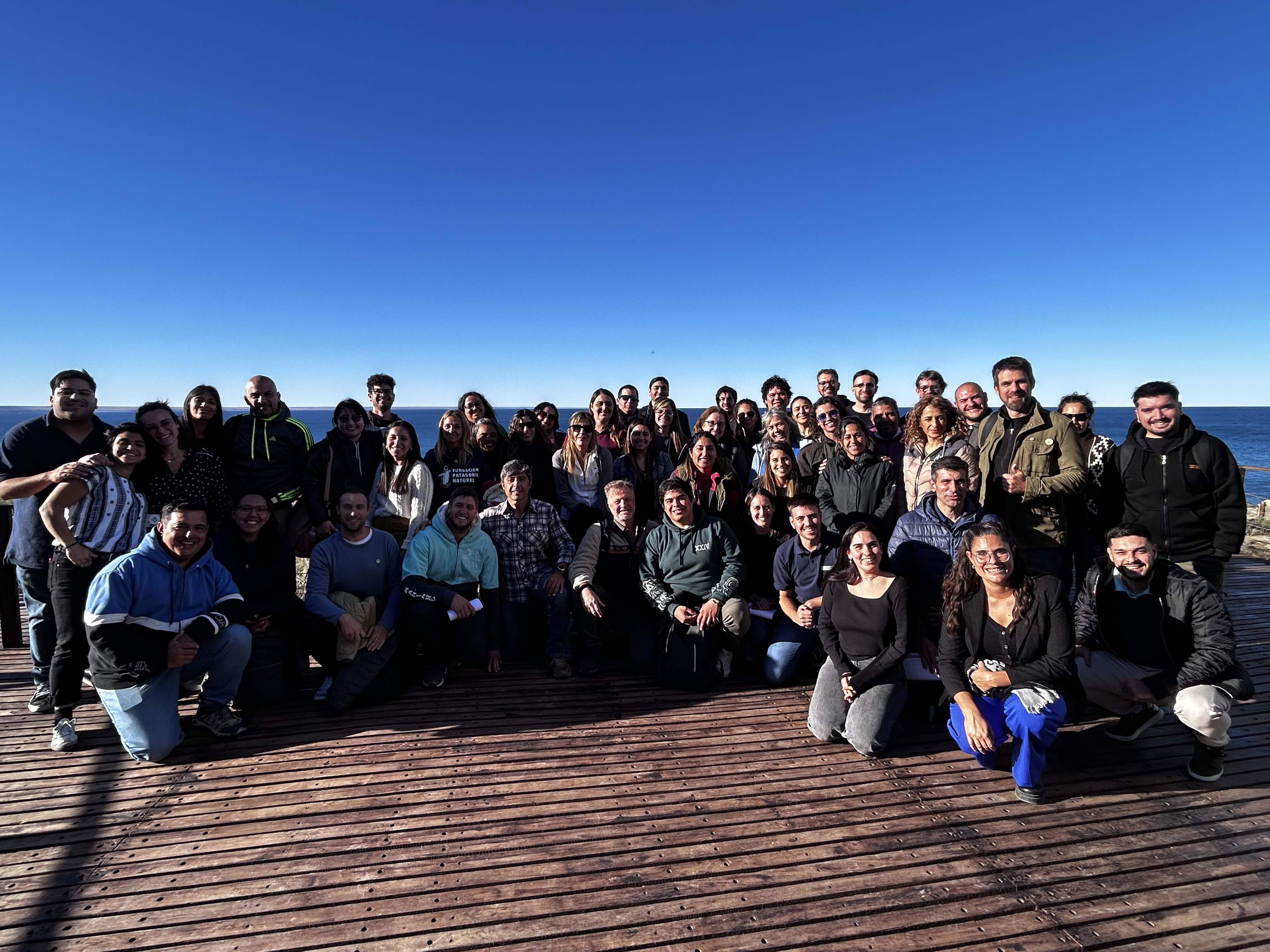More than 45 teachers from 15 schools in Chubut Province, Argentina, participated in the first training to launch our newest capacity building partnership: the YouthEnergy project.
Using biodigesters in wastewater management (Webinar)
Following the launch of RedBioLAC’s webinar series, the second episode looked beyond the typical applications of biodigesters and focused on the function they can play in wastewater management. The invited lecturers were Raúl Botero (Costa Rica), an international expert in sustainable agricultural and livestock systems in the tropics, and Julián Andrés Giraldo (Colombia), a researcher at the Centre of Investigation in Sustainable Systems of Agricultural and Livestock Production (CIPAV) and a farmer.
Botero emphasised the significant potential in the tropics for biomass production and subsequently outlined its use in producing biogas and organic fertilisers for family farms. By combining a biodigester with the use of lagoons, it is possible to simultaneously recycle water and produce biogas: the wastewater from the barns can be used as fertiliser for aquatic plants in the decontamination lagoons which, in turn, recycle the water for reuse in the farm instead of polluting the river. Additionally, Botero put forward the use of human excrement as a biogas source; biodigesters work just as well using human waste as animal waste and this approach could decontaminate cities, bearing in mind that humans produce the same amount of CO2 as all the animals in the world. Another takeaway from Botero’s presentation is that one litre of deep-frying oil pollutes up to one million litres of water but generates 38 times more biogas than liquid cattle manure.
The second speaker, Julián Andrés Giraldo, shifted the focus of the webinar onto the role of knowledge exchange and participative experiments in the context of rural education. He explained how cultural traditions and values are no longer transmitted to the younger generation. Young people also lack experience in manual labour, with the result that they have lost a vital connection to the land. According to Giraldo, the integration of traditional knowledge and academia is an appropriate tool for tackling these failures. He referred to a project in the micro-basin “Los Sainos’ ‘ in western Colombia that was initiated in the 1990s in response to the water crisis due to the emergence of monoculture in the 1980s. Instead of relocating, the 75 fincas there – one of which belonged to Giraldo’s parents – decided to take action. For this purpose, the campesin@s teamed up with local organisations and developed a strategy to rejuvenate the area and focus on environmentally-friendly methods of production. Biodigesters are one of the key technologies used to capture, filter and store rainwater. In a project at Giraldo’s parents’ finca, the effluent from the biodigester was used to cultivate aquatic plants in the canal; this decontaminated the water and created a source of food for birds and pigs. In 1995, this participative experiment won the “planeta azul” (blue planet) prize and is a prime example of how the combination of technical and rural knowledge can generate new technologies.



